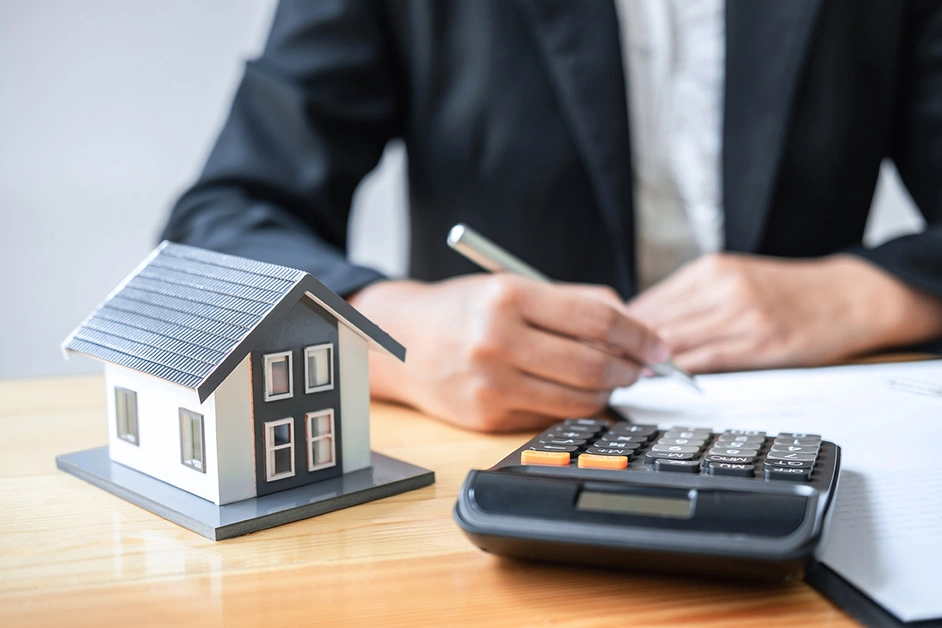Guide to Property Valuation

Property valuation is important when purchasing a property. Let's peek into the guide to property valuation and learn more.
A property valuation is a process to get an estimate of the property at the time of the valuation. A property valuation is necessary for both buyers and sellers and goes both ways. If you want to sell a property, a valuation helps you to get an idea of the price of your home before you put it on sale.
Likewise, to enter the buy-to-let market, getting a guide to property valuation through an experienced real estate agent will help you determine the market-related rent and the yield you can expect.
The valuation assesses the budget required for buying a new home. If you are looking at properties for sale, a valuation could ensure that the price for the new home you want is fair.
If buying, lenders will request a property valuation be carried out before loan approval and the final amount is determined.
What is a Property Valuation?
A property valuation is an estimate of property value based on the condition, location and numerous aspects. A property will be evaluated in person by an experienced surveyor who takes notes and pictures and sends a valuation report.
You can use this when you value your property to put it on sale if you are splitting from an associate who possesses a portion of your property or when dealing with probate.
Is Property Valuation Different from My Mortgage Lender Valuation?
A mortgage lender valuation is different from a property valuation. At the same time, the purpose is to estimate the market value of a property depending on location, size condition and other factors.
A mortgage lender valuation ensures that it is in the lender's interest to provide a mortgage on that property. Some property lenders are less likely to approve a mortgage, like those in a state of structural disrepair, flats above shops or restaurants, or sometimes properties made of certain materials.
An individual will take out the mortgage lender valuation with surveying knowledge of who works for the bank, constructing society or lender. You will usually pay for it as part of your mortgage fees.
Why is Guide to Property Valuation Important?
There are different situations in which property valuation and the report become crucial.
Suppose you want to sell your house, confer with family and friends and determine a selling price. Your customers are not convinced with the price and ask you to put it down. How will you deal? A house valuation provides a precise idea of what the house is worth, and you can preserve this as a reference and deal.
Consider another scenario here, you are thinking of purchasing a second-hand flat, and you want to know the price and whether it is worth it before making any significant investment. Acquiring a flat valuation brings peace of mind and assists you with the right buying price.
You may also require a property valuation if you prefer to get a bank loan or mortgage your property. Property valuation enables you to understand other costs that may incur, including registration charges, taxes, and stamp duties.
Different Valuation Methods
Property valuation involves a lot of factors. It can include safety issues, ease of commutation, the comforts of the property, quality of the structure and proximity to locations. Some properties built beautifully on large plot areas may value less than small buildings due to their location.
Buildings near infrastructural developments and SEZs are valued more, while properties in branded locations may have fewer valuations. Once you decide to go for a property valuation, the evaluator may use one of the methods depending on the property, location, and intent to use.
Comparison Method
The comparison method applies when you are planning to purchase a property to stay in it. The evaluator compares the existing market worth of properties and plots in that area and uses it to make a report. It is one of the most familiar home valuation methods.
Profits Method:
If you plan to rent, buy, or lease a property to run a business, the property value needs to match the gross earnings and help generate profits. Therefore, the evaluator will calculate the whole property's capital value based on gross revenue and working expenses.
Costs Method
If no comparative property prices or valuations are available, evaluators will apply the costs method for house valuation. Here, they will analyze the average cost of buying a building, land, or similar property in the same area and use that as a comparison to evaluate the property.
Residual Method
The residual method is mainly used for properties bought to renovate or make changes to increase the value. Most developmental properties and those purchased as investments are valued using the residual method. Here, the property value gets calculated keeping in mind the possible profits it may reap in future.
Who Carries Out a Property Valuation?
A valuer or surveyor with a professional degree from the Institution of valuers carries out property valuation in India. They must get a license from the state body before starting the same.
Generally, valuers follow the lender or broker who funds the purchase. They yield property valuation with appropriate plans and photos, mentioning facts as follows-
- Location.
- The number of rooms.
- Measurements and site boundaries.
- Condition of the property.
- Structural defects.
- Landscaping.
- Associated risks and benefits, etc.
Likewise, valuers are set to estimate property value with growth potential and fix council tax and rating levels.
What Are the Factors That Affect Property Valuation?
Valuers view financial and social trends, environmental variables and government-laid rules while calculating the value.
A few of the diverse elements affecting the valuation are as follows.
Location
People have come across sellers citing a higher cost for a building in commercial and developed sites than their equivalents in residential areas. Likewise, properties on freehold land show more increased value than leasehold properties.
Amenities
Apart from network coverage, electricity connection, water facilities, and sewerage, people nowadays look for properties with parking lots, children's parks, swimming pools, gymnasiums, community halls and other amenities. Thus, property valuation relies on the availability of essential conveniences and amenities.
Structure
The cost of a project relies on facts, including the material quality used in construction, size, labour costs, durability and others. Moreover, physical aspects, such as design, layout, ceiling covers, floor type and size of a building, affect the rate.
Infrastructure
Investors evaluate infrastructural growth while looking onward to buying a property. Property valuation comes under roads, flyovers, railways, airports, bus terminus, academic institutions, hospitals, amusement hubs, markets and other facilities.
Demand And Supply,
The need for a property is inversely proportional to its supply, which implies the availability of properties declines and worths gain. In addition, any change in the population of a particular region influences the demand, and it will substantially drive prospective investors over a comparatively scarcely populated area.
Affordability
Affordability sets a link between property valuation, interest rates and salaries. If any of these variables maximize in an area, the inhabitants start looking for a better lifestyle elsewhere.
Based on these factors and the country, region, city and locality, the valuers use different property valuation methods to arrive at the rate.
Conclusion
There is no ideal way of evaluating a property's worth, and a guide to property valuation will help you go through many benefits before purchasing a property. An appraisal is an art as much as a science, and in the end, it is supply and demand which determines the actual selling price of a house.
Nevertheless, the above methods provide buyers and sellers guidelines for estimating the approximate worth of a house or any property. It helps sellers decide where to set the price for their property and provides buyers with a particular property purchase. It gives both parties knowledge about the property before investing in it.









